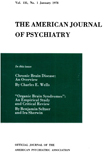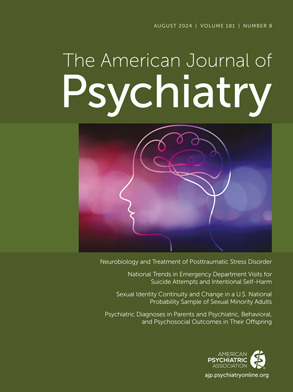Abstract
(1) The physiological and psychological responses following intravenous saline, intravenous epinephrine, and intramuscular mecholyl (B methyl acetyl choline) given on successive days were correlated with clinical findings in 100 neuropsychiatric patients and 15 controls. Careful attention was given to the changes in the systolic blood pressure produced by the drugs and all the results were graphed.
(2) Seven varieties of systolic blood pressure graphs were obtained and are described in detail.
(3) In general a reciprocal relationship prevailed between the immediate blood pressure rise with epinephrine, and the immediate fall in blood pressure with mecholyl; i.e., the greater the rise with epinephrine, the less the fall with mecholyl, and vice versa.
(4) In general, a direct relationship prevailed between the immediate blood pressure rise with epinephrine, and the delayed (compensatory) rise above the pre-injection level with mecholyl, i.e., the greater the blood pressure rise with epinephrine, the greater the delayed rise above the pre-injection level with mecholyl.
(5) Two varieties of response deserve special consideration:
(a) In one group of cases, mostly cases of agitated depression (involutional psychosis), a marked elevation of blood pressure occurred with epinephrine and a large immediate drop with mecholyl; with the latter drug, blood pressure remained depressed below the normal level throughout the 25-minute period of study—that is, homeostasis was not reestablished. This type of response is a distinct exception to (3) and (4).
(b) In another group of cases, the mecholyl response was dramatically featured by a frank chill occurring 11-23 minutes after injection of the drug.
(6) Correlation of the autonomic pattern of response (as shown by graphs of systolic blood pressure) with clinical pictures revealed:
(a) A definite difference between neuropsychiatric patients and controls. Most controls showed a moderate response to the drugs with early tendency to reestablish homeostasis. Most of the neuropsychiatric patients, on the other hand, showed either exaggerated or weak responses to the drugs, often with deficient capacity to re-establish homeostasis.
(b) Aggressive hostile patients bearing the diagnosis psychopathic personality showed a marked blood pressure response to epinephrine (increased sympathetic reactivity) and a minimal response to mecholyl.
(c) Patients with agitated depression, bearing the diagnosis involutional psychosis, showed a marked blood pressure response to both epinephrine and mecholyl—but notable relaxation of anxiety, apprehension, and tremors was noted after mecholyl.
(7) In many neurotic patients with a history of anxiety attacks, it was possible to precipitate anxiety, typical for the individual, by injection of autonomic drugs. Three groups of patients could be defined according to the type reaction:
(a) Patients in whom typical anxiety attacks could be precipitated only by epinephrine.
(b) Patients in whom typical anxiety attacks could be precipitated only by mecholyl.
(c) Patients in whom typical anxiety attacks could be precipitated either by epinephrine or mecholyl.
(8) The significance of these results is discussed in terms of
(a) The relationship between clinical picture and pattern of response to autonomic drugs.
(b) The possibility of a physiological classification of anxiety.

